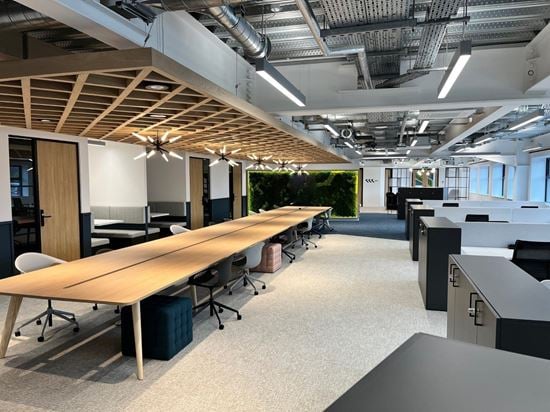Businesses and people are more and more having to decide between regular offices and coworking spaces as the nature of work changes. Depending on the demands, culture, and size of your business, both choices present special opportunities and difficulties. While traditional offices often provide stability and a more controlled setting, coworking spaces give flexibility and a collaborative environment. By choosing shared space taipei, companies can benefit from a collaborative work environment, reducing costs while fostering innovation and creativity.
- Cost-effectiveness and Adaptability
The freedom coworking spaces provide is one of their main benefits. Coworking spaces are perfect for freelancers, small enterprises, or startups looking for a reasonably priced solution free from long-term obligations with short-term leases, flexible membership plans, and pay-as–you-go choices. Coworking environments let companies rapidly scale up or down without having to pay for upkeep of abandoned office space. Conversely, traditional offices can call for long-term leases—usually one year or more—which makes them less adaptable and maybe more costly for businesses that are expanding rapidly or seeing personnel changes. For conventional office environments, the initial expenses can also include upkeep, furniture, and equipment.
- Customize and Space
Generally speaking, traditional offices offer greater area and flexibility for personalizing than coworking environments. In a conventional workplace, you are free to choose the furniture, arrange the space to mirror the values and culture of your business. Larger teams or companies that demand secrecy, including law firms or financial institutions, may find this degree of customizing crucial. On the other hand, coworking spaces may restrict your capacity to personalize the surroundings since they provide pre-made layouts and communal areas. Although companies can hire individual offices in coworking spaces, they usually offer common facilities including kitchens and conference rooms, which cannot give the same degree of privacy as a conventional office.

- Facilities and Infrastructure
High-speed internet, office supplies, conference rooms, printing, and even access to lounges or gyms are just a few of the conveniences Coworking spaces provide. Businesses are not therefore obliged to make investments in maintaining office equipment or building infrastructure. Coworking environments provide a hassle-free fix so that businesses may concentrate on their work instead of administrative issues. Traditional offices, on the other hand, could demand companies to buy and keep their own utilities, tools, and equipment. Nonetheless, conventional offices allow more control over the resources and infrastructure accessible and can be customized to fit the particular requirements of a business.
Shared space taipei offers businesses shared spaces with modern amenities and flexible terms, supporting networking and growth opportunities in Taipei.
共享辦公空間與傳統辦公室:哪個效果最好?
隨著工作性質的變化,企業和人們越來越需要在常規辦公室和共享辦公空間之間做出選擇。根據您的業務需求、文化和規模,這兩種選擇都會帶來特殊的機會和困難。雖然傳統辦公室通常提供穩定性和更受控制的環境,但共享辦公空間提供靈活性和協作環境。透過選擇 共享 空間 台北,
公司可以從協作工作環境中受益,降低成本,同時促進創新和創造力。
- 成本效益和適應性
共享辦公空間提供的自由是其主要好處之一。共享辦公空間非常適合自由工作者、小型企業或新創公司,他們正在尋求價格合理的解決方案,且無需承擔短期租賃、靈活的會員計劃和即用即付選擇等長期義務。共享辦公環境使公司能夠快速擴大或縮小規模,而無需支付廢棄辦公空間的維護費用。相反,傳統辦公室可能需要長期租賃(通常為一年或更長),這使得它們的適應性較差,對於快速擴張或人員變動的企業來說可能成本更高。對於傳統的辦公環境,初始費用還包括維修、家具和設備。
- 定制和空間
一般來說,傳統辦公室比共享辦公環境提供更大的個人化空間和靈活性。在傳統的工作場所中,您可以自由選擇家具、佈置空間以反映您企業的價值觀和文化。需要保密的大型團隊或公司(包括律師事務所或金融機構)可能會發現這種程度的客製化至關重要。另一方面,共享辦公空間可能會限制您個性化周圍環境的能力,因為它們提供預製的佈局和公共區域。儘管公司可以在共享辦公空間租用單獨的辦公室,但它們通常提供廚房和會議室等公共設施,無法提供與傳統辦公室相同程度的隱私。
- 設施和基礎設施
高速網路、辦公用品、會議室、列印,甚至可以使用休息室或健身房只是共同工作空間提供的一小部分便利。因此,企業沒有義務投資維護辦公設備或建造基礎設施。共享辦公環境提供了無憂的解決方案,使企業可以專注於工作而不是管理問題。另一方面,傳統辦公室可能要求公司購買並保留自己的公用設施、工具和設備。儘管如此,傳統辦公室可以更好地控制可訪問的資源和基礎設施,並且可以進行客製化以滿足企業的特定要求。
共享 空間 台北 為企業提供配備現代化設施和靈活條款的共享空間,支援台北的網路和成長機會。